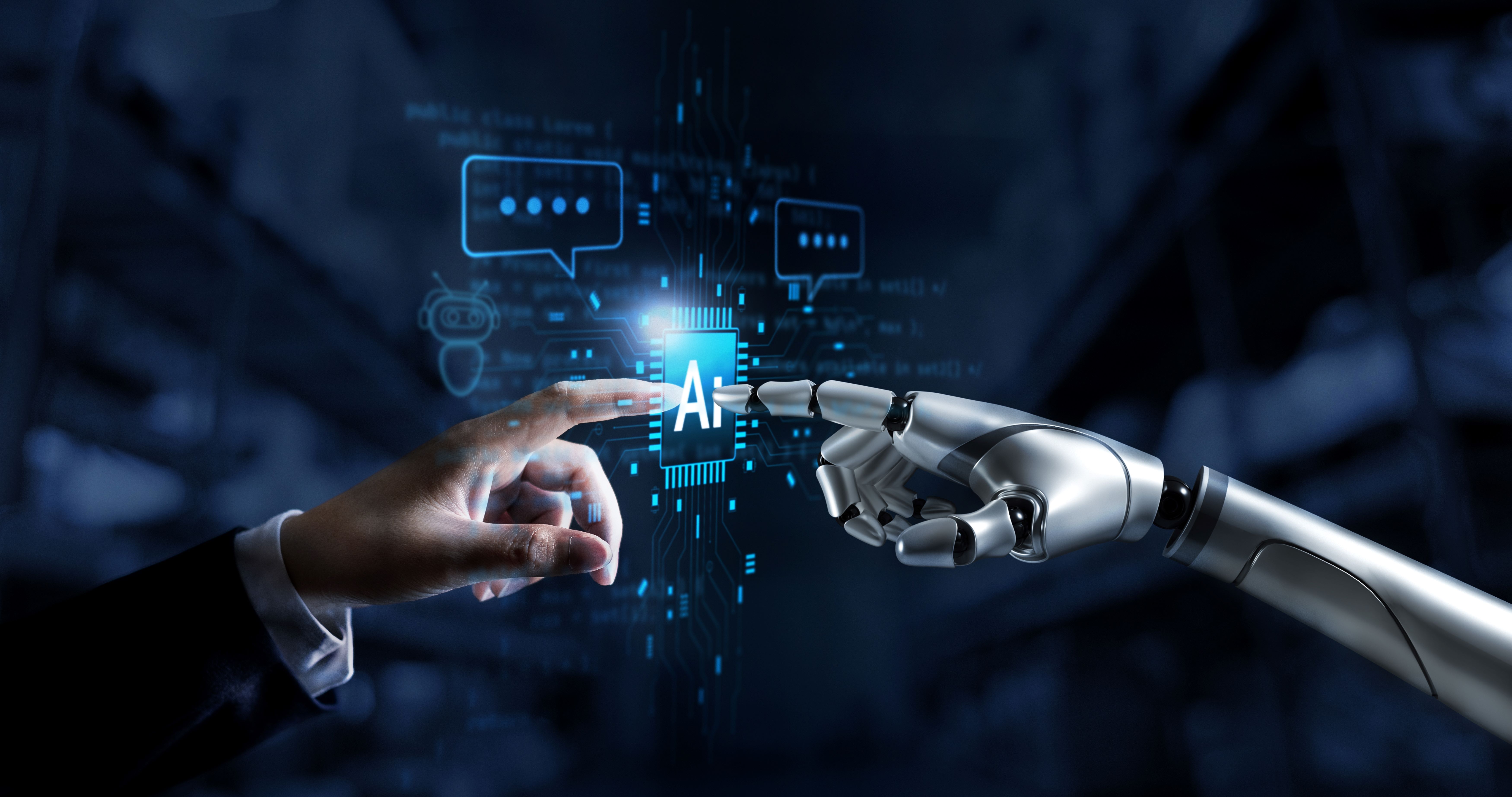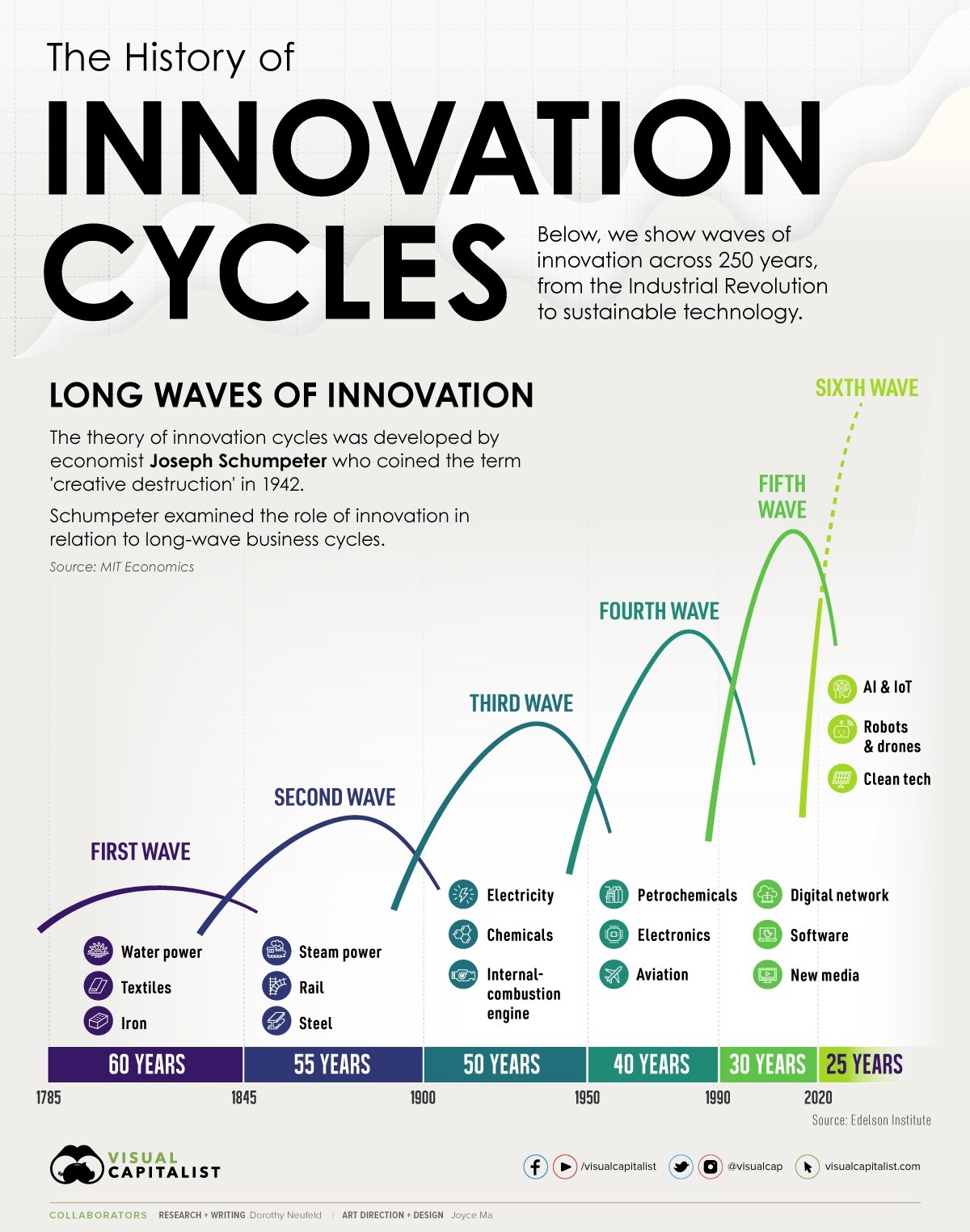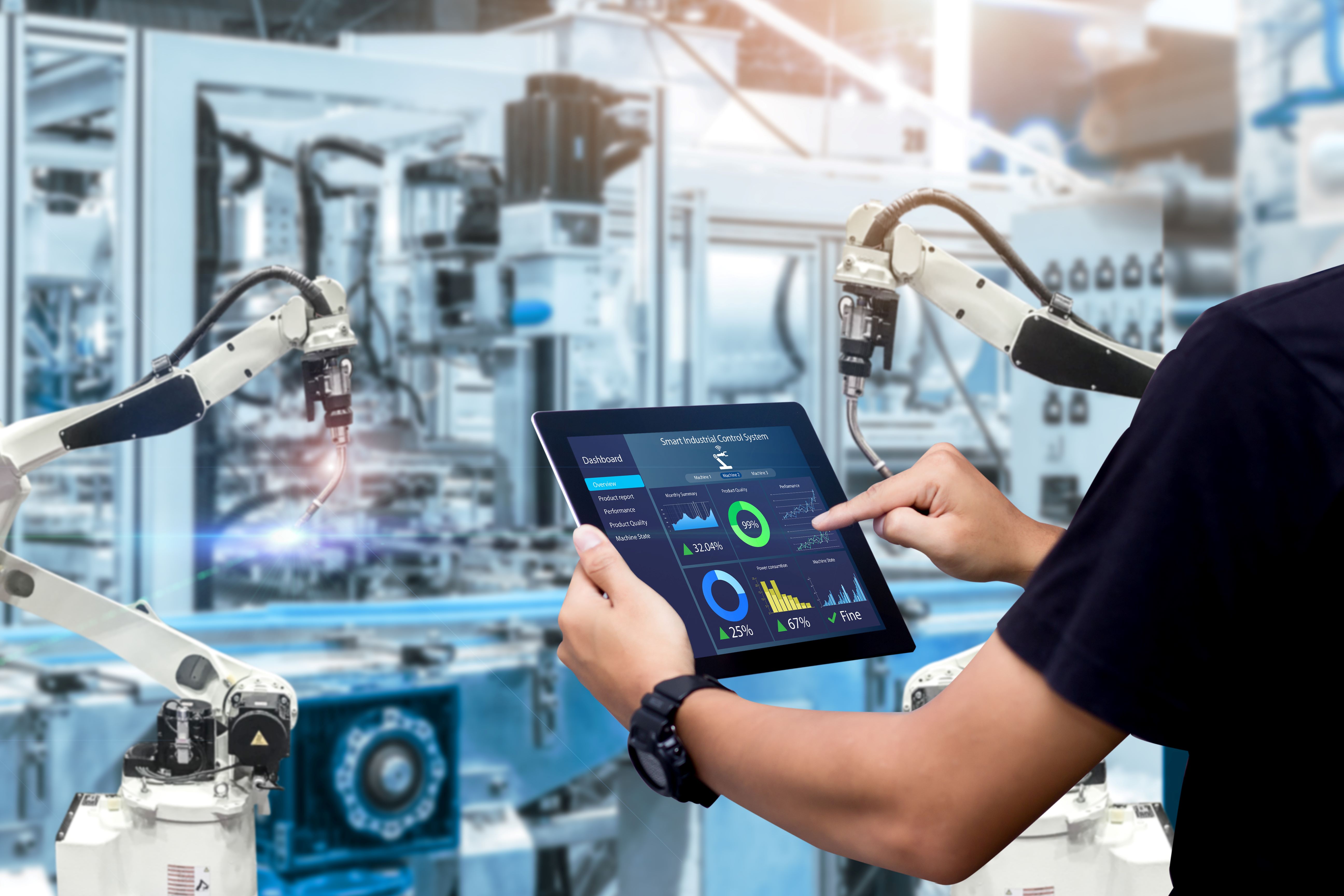
Industrial AI (Artificial Intelligence) – Buzz or Reality?
 Thirty years ago, industrial automation and digitalization was already a career path, and the transformation since then has been extraordinary. The acceleration of technology adoption in recent years has been unprecedented, with artificial intelligence (AI) leading the charge.
Thirty years ago, industrial automation and digitalization was already a career path, and the transformation since then has been extraordinary. The acceleration of technology adoption in recent years has been unprecedented, with artificial intelligence (AI) leading the charge.
Joseph Schumpeter’s concept of “creative destruction” highlights how innovation cycles accelerate, continuously reshaping industries. Industry 4.0 – marked by automation, digitalization, and AI-driven cyber-physical systems – is unfolding at a rapid pace, expected to reach widespread adoption in just 15-20 years. The next revolution is already on the horizon, and its adoption will be even faster.
Does AI Matter to Our Company or Is It Just Hype?
AI adoption has surged, with companies like Amazon, Nvidia, Apple, Microsoft, and Tesla investing heavily, not just for their own advantage but to create competitive benefits for their customers. Traditional industry leaders like Walmart, GE, and 3M are also deeply engaged in AI-driven transformation.
For manufacturing and supply chain operations, Industrial AI is as crucial as “office AI,” driving productivity, reducing costs, and shortening lead times across functions like:
- Sales and marketing
- Product design
- Supply chain management
- Production and operations
- Quality control
- Logistics
- Finance and analytics
- Human resources
Consider these statistics:
- AI can add $15.7 trillion to the global economy by 2030, with $6.6 trillion in productivity gains (PWC).
- Manufacturers investing in AI expect revenue growth of 11.6% over three years (Deloitte).
- 50% of automotive and electronics manufacturers are integrating AI into operations (McKinsey).
- AI can boost business productivity by 40% (Accenture) and cut equipment downtime by 50% (KPMG).
- AI could reduce pharmaceutical R&D costs by 30% (BCG).
Ignoring this trend is not an option – AI is reshaping industrial operations, making it essential for companies of all sizes.
Understanding AI and Industrial AI
Like human intelligence, AI processes data to learn and improve decision-making. We gain knowledge through experiences; similarly, AI, powered by advanced computing and supported by Moore’s Law, processes vast amounts of industrial data, drawn from:
- Enterprise systems (ERP, CRM, PLM, HRIS, SCM)
- Industrial IoT (real-time machine data, sensors, actuators, SCADA, MES)
- Product data (product connectivity for our own field machines/devices)
 Practical AI Applications in Industry
Practical AI Applications in Industry
- Design & Innovation: AI-driven digital twins and PLM systems optimize product development.
- Supply Chain: AI enhances network optimization, cost modeling, demand forecasting, and inventory management.
- Production: AI minimizes inefficiencies, accelerates learning cycles, and provides real-time recommendations.
- Quality Control: AI-powered visual inspection outperforms humans in speed and accuracy.
- Predictive Maintenance: AI reduces downtime, saving billions in operational costs.
How to Approach AI Implementation
While AI may seem complex, success comes from a structured approach:
- Assess the company’s technology maturity and skill levels.
- Identify high-impact opportunities.
- Secure leadership commitment.
- Develop a clear AI roadmap with milestones.
- Allocate resources (people and capital).
- Pilot small initiatives before scaling.
- Establish governance and executive sponsorship.
- Communicate a clear vision and manage organizational change.
- Celebrate early successes to build momentum.
Key Barriers to AI Success
Common obstacles include:
- Lack of leadership commitment and strategic vision.
- Insufficient internal expertise or external support.
- Siloed operations limiting collaboration.
- Poor change management leading to employee resistance.
- Unrealistic expectations and impatience.
- Data quality and process inefficiencies left unaddressed.
Overcoming these challenges requires a solid foundation for digital transformation and AI integration.

Are You Ready?
AI in industry is not a future concept – it is happening now. Companies must embrace it systematically to stay competitive.
-
Yannick Schilly Co-Founder, President & CEO
- March 24, 2025
- Send Email


